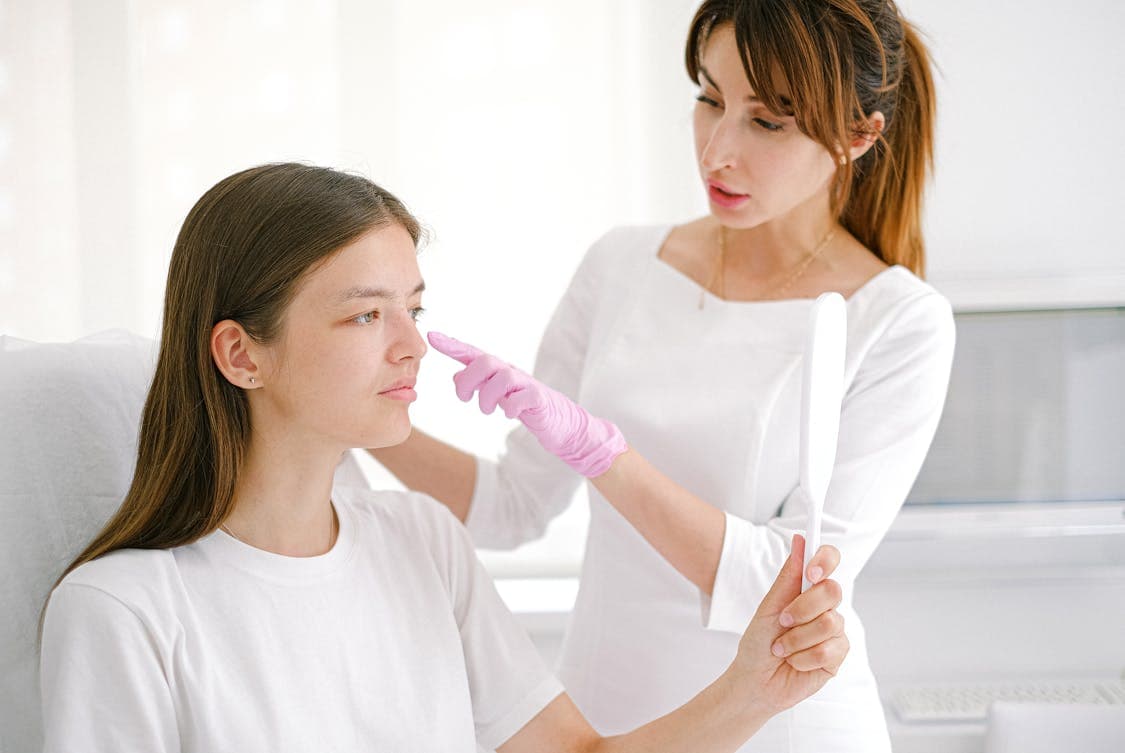Your skin is the body’s largest organ, acting as a protective barrier against the environment. It plays a vital role in maintaining homeostasis by regulating temperature and protecting against pathogens.
Yet, despite its importance, many individuals neglect to care for their skin properly. Regular dermatology services can help ensure your skin remains healthy and resilient.
Common Skin Concerns
People face various skin issues, from acne to eczema, psoriasis, and premature aging. Acne, often seen during adolescence, can impact self-esteem and confidence.
Eczema presents as dry, itchy patches that can be incredibly uncomfortable. Psoriasis, with its red, scaly patches, can be both painful and embarrassing.
Many don’t realize that these issues can often be managed effectively through professional care.
The Role of Dermatologists
Dermatologists are specialists trained to diagnose and treat skin conditions.
With extensive knowledge of skin anatomy and physiology, they can identify underlying issues that may not be immediately apparent. They employ various diagnostic tools and treatment methods tailored to individual needs.
A trained eye can often spot problems before they escalate into more significant health concerns.
The Benefits of Regular Skin Check-Ups
Just like routine health check-ups, regular visits to a dermatologist can catch potential issues early. Skin cancer is one of the most common cancers, yet it is also one of the most treatable when detected early.
A dermatologist can perform full-body skin examinations, helping to identify suspicious moles or lesions that may need further evaluation. Proactive care can save lives.
Personalized Treatment Plans

Each skin type is unique, and what works for one person might not work for another. Dermatologists assess skin types and conditions to create personalized treatment plans.
For complex skin concerns that require expert care, seeking advice from the top dermatologists can make all the difference in achieving lasting results.
Whether it’s prescription medications for acne or specialized creams for eczema, tailored approaches lead to better outcomes. Patients often find that their skin improves dramatically when they stick to a plan designed just for them.
Advanced Treatment Options
With advancements in dermatology, there are numerous treatment options available. From laser therapy to chemical peels and microdermabrasion, the possibilities are vast.
These procedures can enhance skin texture, tone, and clarity. Many people find that professional treatments yield results that at-home remedies simply cannot match.
Importance of Education
Dermatology services extend beyond just treatment; they also involve education. Dermatologists take the time to explain skin conditions, treatments, and preventive measures.
This educational aspect empowers patients to make informed choices about their skin health. Understanding how to care for one’s skin can lead to better long-term results.
Managing Aging Skin
As we age, our skin undergoes various changes, such as loss of elasticity and dryness. Dermatologists can offer solutions to combat these signs of aging.
Treatments may include topical retinoids, fillers, or Botox to minimize wrinkles and improve overall skin appearance. Regular consultations can help maintain a youthful glow, making a big difference in self-perception.
Sun Protection Guidance
One of the most significant factors in skin health is sun exposure. Ultraviolet (UV) rays can cause sunburn, premature aging, and increase the risk of skin cancer.
Dermatologists stress the importance of sun protection, advising on the best sunscreens and protective clothing. Learning about the impact of UV exposure can lead to healthier habits and better skin.
Addressing Psychological Impact
Skin conditions often have a psychological component. Acne, for instance, can lead to anxiety and depression in some individuals.
Dermatologists recognize this connection and often work alongside mental health professionals to provide comprehensive care. Understanding the emotional aspects of skin conditions is essential for full recovery.
The Value of Professional Products
Not all skin care products available over the counter are beneficial; some may even exacerbate problems. Dermatologists can recommend medical-grade skincare products specifically designed for various conditions.
These products often contain higher concentrations of active ingredients, leading to more effective outcomes. Investing in professionally recommended products can prove invaluable.
Skin Care Routines
Creating an effective skincare routine is vital for maintaining healthy skin. A dermatologist can help develop a regimen based on skin type, lifestyle, and specific concerns.
Simple habits, like regular cleansing and moisturizing, can dramatically improve skin health. Moreover, adopting a consistent routine can prevent future skin issues.
Innovations in Dermatology
The field of dermatology is continually evolving. New research and technology lead to innovative treatment options that can enhance patient care.
For example, teledermatology allows patients to consult with specialists remotely, expanding access to care. These advancements make it easier for individuals from all backgrounds to receive necessary treatments.
Community Resources and Support
Dermatology services often extend beyond the clinic. Many dermatologists collaborate with local organizations to provide resources and support for individuals with chronic skin conditions.
Information sessions, support groups, and community outreach programs can help raise awareness and provide additional care options.
The Importance of Self-Examination
Alongside professional care, self-examinations play a crucial role in skin health. Regularly checking your skin for changes can help catch problems early.
Knowing your skin can help you identify any new growths or changes in existing moles. This proactive approach can be life-saving, particularly concerning skin cancer.
Addressing Myths and Misunderstandings
There are numerous myths surrounding skin care and dermatology. Some believe that only teenagers get acne, or that sunscreen is only necessary during summer.
Dermatologists play a key role in dispelling these misconceptions, providing factual information that promotes better skin care habits. Educating the public about these myths can lead to more informed choices.
Holistic Skin Care Approaches
A healthy lifestyle significantly impacts skin health. Dermatologists often emphasize the importance of diet, hydration, and stress management.
Balanced nutrition can provide the necessary vitamins and minerals for maintaining healthy skin. Incorporating healthy habits can complement professional treatments, leading to a more comprehensive approach to skin care.
Family History and Genetics
Some skin conditions have genetic components. Family history can play a role in predispositions to certain issues, such as eczema or psoriasis.
Understanding your family’s health background can inform your approach to skin care. Dermatologists often take this into account when assessing patients, allowing for a more tailored treatment strategy.
Staying Informed About New Research
The world of dermatology is continuously being shaped by new research. Keeping up with the latest advancements can help patients make informed decisions about their skin health.
Many dermatologists encourage patients to ask questions and seek information about new treatments or studies that may be relevant to their care.
Importance of Follow-Up Care
After initial treatment, follow-ups are essential for monitoring progress and making adjustments as needed. Skin conditions can be complex and may require ongoing management.
Regular check-ins with a dermatologist ensure that treatment remains effective and any new issues are addressed promptly.
By prioritizing dermatology services, individuals can take significant steps towards healthier skin. With professional guidance and a commitment to self-care, achieving and maintaining healthy skin is within reach.
Your skin truly deserves better, and investing in its health is an investment in your overall well-being.


